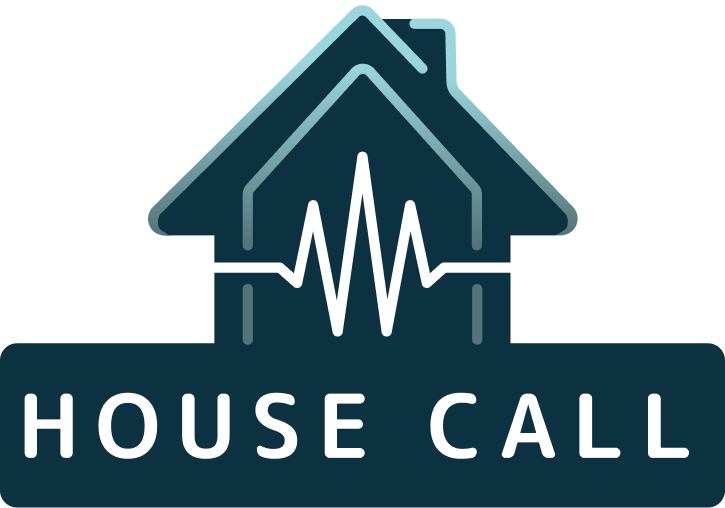Nutraceuticals vs. Supplements vs. Medications: What’s the Difference?
If you’ve ever wandered down the health aisle at your local pharmacy, you’ve probably encountered a dizzying array of pills, powders, and elixirs promising everything from curing headaches to boosting brainpower. But what exactly are the differences between medications, nutraceuticals, and dietary supplements? More importantly, how do you know which one to take when your body is calling for backup?
Let’s break it down in a way that won’t require a medical degree—or reading glasses to see those tiny ingredient labels.
(At House Call the App, we believe in empowering people with knowledge to make informed health decisions. Whether you’re looking to supplement your diet or seeking professional medical guidance, we bring healthcare directly to you!)
Definitions and Compositions
Medications: The Heavy Lifters of Healthcare
Medications, also called pharmaceuticals or drugs, are scientifically formulated substances designed to diagnose, treat, cure, or prevent diseases. Think of them as the superheroes of the healthcare world—tested, regulated, and (usually) requiring a doctor’s approval before you can get your hands on them. They contain active pharmaceutical ingredients (APIs), which produce specific physiological effects by interacting with your body in precise ways.
Examples of medications:
- Antibiotics for infections
- Painkillers like ibuprofen
- Blood pressure medication
Nutraceuticals: The Middle Ground
Nutraceuticals sit in the gray area between medicine and nutrition. They’re derived from food sources but offer health benefits beyond basic nutrition—kind of like that friend who always has a remedy for everything. While they may not be classified as drugs, they often claim to help prevent chronic diseases, support bodily functions, or improve overall wellness.
Examples of Nutraceuticals:
- Omega-3 fish oil (for heart health)
- Probiotics (for gut health)
- Functional foods like fortified cereals, garlic, or antioxidant-rich teas
Supplements: The Wellness Sidekicks
Dietary supplements do exactly what their name suggests—they supplement your diet. Unlike medications, they don’t treat or cure diseases, but they help fill nutritional gaps. They’re often taken by those who want to enhance their overall health or prevent deficiencies, but they don’t undergo the same rigorous testing as pharmaceuticals.
Examples of Supplements:
- Multivitamins
- Vitamin D tablets
- Herbal extracts like turmeric or ginseng
- NAD+ infusion
Regulatory Framework: Who’s Keeping an Eye on These?
Medications: The Most Watched of the Bunch
In the U.S., medications undergo strict regulation by the FDA (Food and Drug Administration). Before they reach your medicine cabinet, they go through extensive clinical trials to prove their safety and effectiveness. This process can take years and millions of dollars, but it ensures that what you’re taking actually works.
Nutraceuticals: The Undefined Category
Surprisingly, nutraceuticals don’t have a clear-cut regulatory definition in the U.S. Depending on their formulation and claims, they may be classified as foods, dietary supplements, or even drugs. This makes things a little murky—some products have scientific backing, while others rely on traditional knowledge and marketing.
Supplements: The Loosely Regulated Cousins
Dietary supplements fall under the Dietary Supplement Health and Education Act (DSHEA), which treats them as a food category rather than drugs. Unlike medications, they don’t need FDA approval before hitting the shelves. While manufacturers are responsible for product safety, the lack of strict regulation means that quality and effectiveness can vary widely.
Should You Choose Medications, Nutraceuticals or Supplements?
Category
Best For
Examples
Medications
Treating diagnosed medical conditions
Prescription drugs, pain relievers, antibiotics
Nutraceuticals
Enhancing health, supporting bodily functions
Omega-3, probiotics, functional foods
Supplements
Preventing nutrient deficiencies, overall wellness
Multivitamins, herbal extracts, vitamin D
Final Thoughts: What’s Right for You?
If you’re dealing with a medical condition, medications are your go-to (and always follow your doctor’s advice). If you’re looking for extra health support, nutraceuticals might be worth exploring—but be sure to check for credible research. If your goal is filling nutritional gaps, dietary supplements can help, but remember, they’re no substitute for a balanced diet.
(With House Call the App, you can consult a licensed healthcare provider from the comfort of your home. Whether you need professional medical advice or just want to optimize your wellness routine, our experts are here to help!)
Supplement and Nutraceutical FAQs
1. Can nutraceuticals and supplements replace medications?
No. While they can support health, they do not treat or cure medical conditions the way FDA-approved medications do.
2. How do I know if a supplement is safe?
Look for third-party testing labels like USP, NSF, or ConsumerLab to ensure quality.
3. Do I need a prescription for nutraceuticals or supplements?
No, but it’s best to talk to a doctor before taking them, especially if you have existing health conditions.
4. Are natural supplements always safe?
Not necessarily. Just because something is natural doesn’t mean it’s risk-free—always research dosages and possible interactions.
5. What’s the best way to choose a high-quality supplement?
Opt for brands that follow Good Manufacturing Practices (GMPs) and have positive reviews from trusted sources.
Interested in expert wellness advice and personalized healthcare solutions? Visit House Call the App and take control of your health today!

 Login
Login
1 reply on “Medications, Nutraceuticals, and Supplements: Understanding the Differences and When to Use Each”
[…] Medication Administration: Giving injections, managing IV therapy, or ensuring medication adherence. […]